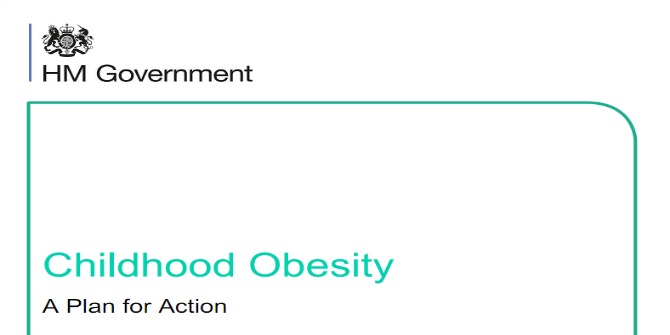
 Roger Kline and Brendan Martin suggest that recommendations in the Francis Report about policing inadequate behaviour by health care workers have been over emphasised, neglecting opportunities to ensure higher standards. There is a danger that the opportunities provided by the report to strengthen the best aspects of NHS culture will be overwhelmed by defensive responses that reinforce the weak ones.
Roger Kline and Brendan Martin suggest that recommendations in the Francis Report about policing inadequate behaviour by health care workers have been over emphasised, neglecting opportunities to ensure higher standards. There is a danger that the opportunities provided by the report to strengthen the best aspects of NHS culture will be overwhelmed by defensive responses that reinforce the weak ones.
During the course of the Francis Inquiry the core theme that emerged was that the toxic leadership and management culture at the heart of the shameful events in Mid Staffordshire had to change. Yet there has been little analysis of the extent to which the report’s recommendations could be used by staff to enable that culture to change. The inquiry evidence suggested that performance management undermined professional responsibility, leading to box ticking and cost cutting taking priority over compassionate attention to patients. As ministers shoot from the hip with proposals to link future pay rises to managerial judgments about compassionate behaviour, it appears they have learnt nothing.
Unless a culture is created in which staff really are engaged, have realistic workloads and support, and feel free to raise concerns, there will inevitably be similar disasters in future. After all it was only a decade ago that a damning report was produced about baby deaths at Bristol Royal Infirmary.
However, for those who care to look, the Francis Report does provide real opportunities for staff to insist on their rights to exercise professional responsibility, so that the balance between their obligations and their capacity to meet them is re-established. Among the 290 recommendations and 1700 pages are several recommendations that significantly underpin the contractual protection for staff who raise concerns and whistleblow. We highlight some examples below.
Firstly, the report (Recommendations 173 – 174) asserts a duty to be open, honest, and transparent with patients, thus “enabling concerns and complaints to be raised freely without fear and questions asked to be answered”. It further recommends (181) a duty on registered medical practitioners, registered nurses and other registered professionals who “believe or suspect that treatment or care provided to a patient by or on behalf of any healthcare provider by which they are employed has caused death or serious injury to the patient to report their belief or suspicion to their employer as soon as is reasonably practicable”.
That is complemented (179) by a recommended ban on gagging clauses that “seek, or appear, to limit bona fide disclosure in relation to public interest issues of patient safety and care.” So the contractual entitlement to whistleblow is complemented by a duty to do so in these circumstances, and a ban on cover-ups linked to compromise agreements.
Secondly, the combined effect of several recommendations would be a beefed up requirement to raise incident alerts and for employers to respond to them. This would be complemented (173 – 174) by improved rights to access information on safety “allowing information about the truth about performance and outcomes to be shared with staff, patients, the public and regulators.” Such enhanced disclosure duties ought to be a powerful tool for employers and staff to analyse and learn from errors, mistakes and near misses.
In addition, it would become a criminal offence for any registered medical practitioner, or nurse, or allied health professional or director of an authorised or registered healthcare organisation “knowingly to obstruct another in the performance of these statutory duties (or) to provide information to a patient or nearest relative intending to mislead them about such an incident”, or to “dishonestly make an untruthful statement to a commissioner or regulator knowing or believing that they are likely to rely on the statement in the performance of their duties” (183).
Also recommended (182) is a statutory duty on all directors of healthcare organisations to be “truthful in any information given to a healthcare regulator or commissioner, either personally or on behalf of the organisation, where given in compliance with a statutory obligation on the organisation to provide it.” These are potentially powerful levers which assertive staff could use to assist the raising of concerns.
Thirdly, in addition to recommending regulation of health care assistants, and although he has not endorsed mandatory nurse staffing levels, Francis has recommended (23) evidence-based tools for determining staffing levels and skills mixes on wards, which could help staff and managers to insist on safe staffing in the face of stiff budgetary headwinds.
Finally, the report recommends new fundamental statutory standards, which will presumably equate broadly to the staff duty of care for any particular service or discipline. Senior staff would be required (208) to personally sign off commissioned services as being safe. Again, staff could use these provisions to ensure standards are maintained, not least by pointing out that they could be criminally liable otherwise (28).
However, the latter point also suggests that recommendations that could empower staff to drive improvements could also be used to have the opposite effect. Without change to the hierarchical and bullying culture that is deeply embedded in the NHS, these recommendations could reinforce defensive practice rather than enabling an open learning workplace environment. It is unfortunate, therefore, that Francis made no specific recommendations about bullying, although the inquiry evidence showed its central importance.
There is a well-evidenced literature showing that patient safety improves in a “just culture” in which staff and organisations are held accountable but learning takes precedence over blame except in extreme cases. If the rights and duties of staff to take individual and collective responsibility are systematically supported in a framework of mandatory standards, openness, transparency and candour, then these particular Francis recommendations could make a real difference.
The report provides opportunities to change the NHS culture in ways that empower staff to do the right thing as well as requiring them to do so. But it could also be used to reinforce the hierarchical top-down management culture that the inquiry evidence revealed to be toxic. The attitude and mindsets of HR professionals, professional bodies and trades unions could determine which road is taken.
Note: This article gives the views of the author, and not the position of the British Politics and Policy blog, nor of the London School of Economics. Please read our comments policy before posting.
Brendan Martin is managing director of the social enterprise Public World, which works to improve public service productivity and quality through stronger workplace and civic democracy. He has worked for government agencies and public sector organisations in Britain, New Zealand, Philippines, South Africa, Uganda and Vietnam, for international institutions including the International Labour Organisation and the European Foundation for the Improvement of Working and Living Conditions, and for union organisations in more than 60 countries.
Roger Kline is a visiting fellow at Middlesex University, and a former Head of Equality and Employment Rights at Britain’s University and College Union. He has also worked for several other unions, is an associate consultant with Public World, a co-director of the pressure group Patients First and a special adviser to Public Concern at Work.







